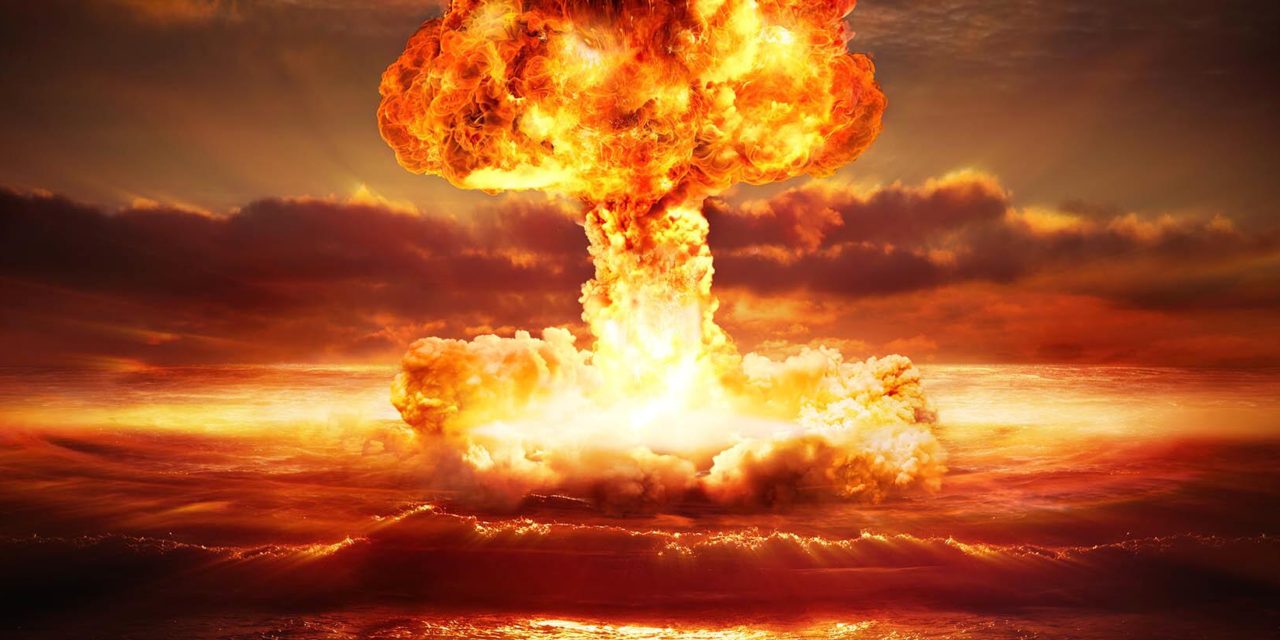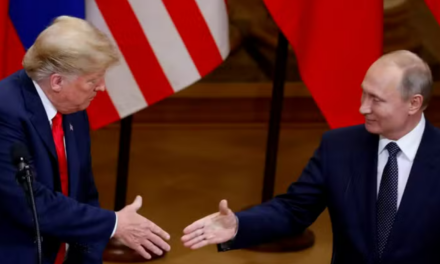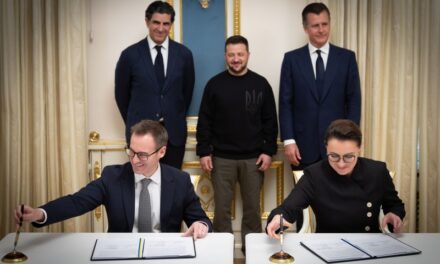Russia’s special operation in Ukraine is taking its toll on the western alliance. Over the past couple of days, some reports indicate Finland will not join NATO without Sweden and the Secretary-General of NATO has now stated that Ukraine must decide how much territory it wants to trade for peace. We are also hearing from the US leader Joe Biden that his office was only acting on the intelligence given regarding the situation in Ukraine.
The most disturbing story comes from the former Foreign Minister of Poland Radoslaw Sikorski, who in an interview with Ukraine’s Espreso TV on Saturday stated that the West needs to give Ukraine Nuclear weapons.
Mr Sirorski cites the Budapest memorandum which in 1994 was signed by Belarus, Kazakhstan, Ukraine, Russia, United States, United Kingdom, France, and China. He goes on to state that the agreement surrendered the Soviet-era nuclear arsenal to Russia and that the signatories promised to respect the independence and sovereignty of the existing borders of Ukraine.
“There is a second argument that has not yet been made public, but I think it is well-founded. Ukraine is known to have given up its nuclear potential after the Budapest Memorandum was signed in 1994. Today, Russians and some still say it is not. But everyone then understood that Ukraine would instead be an independent country within the borders established since the Soviet era. Russia has undoubtedly violated the treaty many times. But because Russia has violated this Budapest Memorandum, I believe that we, as the West, would have the right to give Ukraine nuclear warheads. So that it can defend its independence, “said the MEP
The argument that Mr Sirorski fails to address is that the US and EU powers were the first to violate the agreement when they actively pursued an agender of regime change in Ukraine in 2014.
According to the memorandum, Russia, the US and the UK confirmed their recognition of Belarus, Kazakhstan and Ukraine becoming parties to the Treaty on the Non-Proliferation of Nuclear Weapons and effectively abandoning their nuclear arsenal to Russia and that they agreed to the following:
The Presidents of Ukraine, the Russian Federation and the United States of America, and the Prime Minister of the United Kingdom signed three memorandums (UN Document A/49/765) on December 5, 1994, with the accession of Ukraine to the Treaty on the Non-Proliferation of Nuclear Weapons. Through this agreement, these countries (later to include China and France in individual statements) gave national security assurances to Belarus, Kazakhstan and Ukraine. The Joint Declaration by the Russian Federation and the United States of America of December 4, 2009, confirmed their commitment.
Excerpt:
“Welcoming the accession of Ukraine to the Treaty on the Non-Proliferation of Nuclear Weapons as a non-nuclear-weapon State,
Taking into account the commitment of Ukraine to eliminate all nuclear weapons from its territory within a specified period of time,
Noting the changes in the worldwide security situation, including the end of the cold war, which have brought about conditions for deep reductions in nuclear forces,
Confirm the following:
- The Russian Federation, the United Kingdom of Great Britain and Northern Ireland and the United States of America reaffirm their commitment to Ukraine, in accordance with the principles of the Final Act of the Conference on Security and Cooperation in Europe, to respect the independence and sovereignty and the existing borders of Ukraine;
- The Russian Federation, the United Kingdom of Great Britain and Northern Ireland and the United States of America reaffirm their obligation to refrain from the threat or use of force against the territorial integrity or political independence of Ukraine, and that none of their weapons will ever be used against Ukraine except in self-defence or otherwise in accordance with the Charter of the United Nations;
- The Russian Federation, the United Kingdom of Great Britain and Northern Ireland and the United States of America reaffirm their commitment to Ukraine, in accordance with the principles of the Final Act of the Conference on Security and Cooperation in Europe, to refrain from economic coercion designed to subordinate to their own interest the exercise by Ukraine of the rights inherent in its sovereignty and thus to secure advantages of any kind;
- The Russian Federation, the United Kingdom of Great Britain and Northern Ireland and the United States of America reaffirm their commitment to seek immediate United Nations Security Council action to provide assistance to Ukraine, as a non-nuclear-weapon State party to the Treaty on the Non-Proliferation of Nuclear Weapons, if Ukraine should become a victim of an act of aggression or an object of a threat of aggression in which nuclear weapons are used;
- The Russian Federation, the United Kingdom of Great Britain and Northern Ireland and the United States of America reaffirm, in the case of Ukraine, their commitment not to use nuclear weapons against any non-nuclear-weapon State party to the Treaty on the Non-Proliferation of Nuclear Weapons, except in the case of an attack on themselves, their territories or dependent territories, their armed forces, or their allies, by such a State in association or alliance with a nuclear-weapon State;
- Ukraine, the Russian Federation, the United Kingdom of Great Britain and Northern Ireland and the United States of America will consult in the event a situation arises that raises a question concerning these commitments.
This Memorandum will become applicable upon signature.
Signed in four copies having equal validity in the Ukrainian, English and Russian languages.
For Ukraine:
(Signed) Leonid D. KUCHMA
For the Russian Federation:
(Signed) Boris N. YELTSIN
For the United Kingdom of Great
Britain and Northern Ireland:
(Signed) John MAJOR
For the United States of America:
(Signed) William J. CLINTON
As stated in the memorandum in point 3
“In accordance with the principles of the Final Act of the Conference on Security and Cooperation in Europe, to refrain from economic coercion designed to subordinate to their own interest the exercise by Ukraine of the rights inherent in its sovereignty and thus to secure advantages of any kind;”
It would also call into question the so-called financial aid given to organisations within Ukraine by The US government and the actions of Victoria Nuland when she discussed who the United States wanted to lead Ukraine during the coup of 2014.
Furthermore, this allows the leader of Belarus to seek nuclear weapons from Russia and to place them on its borders with Poland, Lithuania, Latvia and Western Ukraine.
And finally, Mr Sikorski’s argument that Russia has broken the Budapest memorandum, and yet he conveniently forgets that NATO, of which his country is a member broke the agreement made to ensure that a buffer zone remained for the security of all European nations, in that NATO was never to move one inch further towards the East.
These comments from the former Foreign Minister of Poland and now MEP Radoslaw Sikorski raise more questions than they answer. They place Europe as a whole at an increased risk of nuclear annihilation, while allowing the US to take no responsibility for any outcome.





